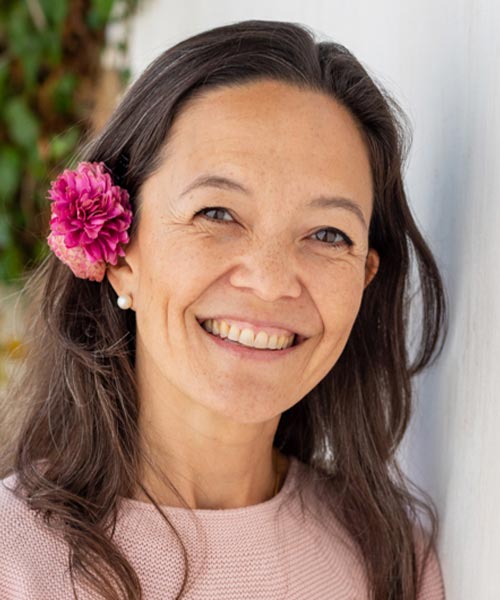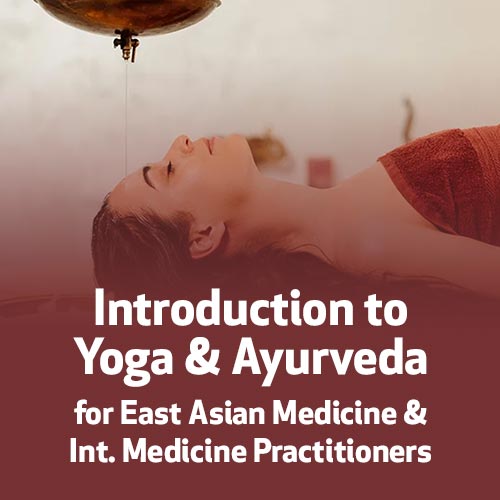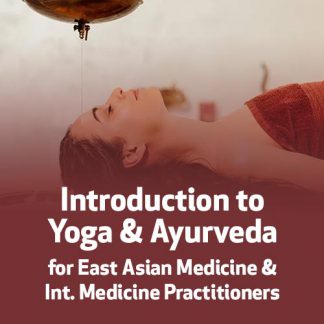Course Overview
Patients or clients may tell you they practice Yoga or Ayurveda but what does that mean? Do we, as their healthcare providers, really know what the patient means when they share this? Misrepresentation of what Yoga and Ayurveda are in the U.S. and in communities outside of their South Asian origins makes it challenging for healthcare providers to know what the patient/client means.
The aim of this course is to give you a broad understanding of the common concepts and therapies used in Yoga and Ayurveda, particularly focusing on the language or concepts your patients/clients might use. By looking at the qualities of these different practices and concepts, you will learn how your patient’s Yoga and/or Ayurveda practices may be contributing to their overall health patterns. By enhancing your understanding of these various practices, you can evaluate with more clinical clarity how these practices may be influencing your patient’s health challenges, your clinical assessment, diagnosis and treatments. You will also learn specific questions to ask your patients/clients so you can become very clear on what and how their practices are influencing their health patterns and put it into a broader picture of your assessment and/or clinical outcomes. My main objective is for you to feel more clear and confident asking questions that help you and the patient reduce physical, mental, emotional, and spiritual suffering.
Objectives
-
Learn the general qualities of different Yoga & Ayurveda concepts and practices to improve clinical assessment.
-
Feel more confident and clear on what questions to ask your patients to better understand how their use of Yoga and Ayurveda may be affecting their health patterns, and therefore, your clinical assessment and/or clinical outcomes.
-
Feel confident having conversations with clients/patients and other healthcare practitioners about Yoga and Ayurveda and its intersection with East Asian Medicine.
Outline
0 hrs - 15 min
Introduction: Learning Objectives. Syllabus for the course. Why is this an important topic?
15 min - 45 min
AYURVEDA: In this section we review the definition of Ayurveda, learn the definition of health from an Ayurveda perspective. In this section, you will also learn about dosha, agni, ama and their clinical relevance.
45 min - 1.25 hrs
AYURVEDA cont: You will review and learn common Ayurveda therapies and their qualities. You will apply your understanding of the therapeutic qualities to enhance your clinical application and relevance.
1.25 hrs - 1.5 hrs
Ayurveda Clinical Clarity: Apply what you learned about Ayurveda concepts and therapies into your own clinical practice and assessment. Learn specific questions to ask your patients.
1.5 hrs - 2 hrs
Yoga - Review the definition of Yoga, yoga practices and learn the qualities of these practices. Learn the ideal outcomes of a Yoga practice. Look specificallly at the qualities of various Yoga Asana practices.
2 hrs - 2.5 hrs
YOGA cont. Defining Pranayama and their qualities, discussions on Meditation, Mantra, and Yoga Clinical Clarity: applying what you learned about Yoga into your clinical practice, assessment, and specific questions to ask your patients.
2.5 hrs - 2.75 hrs
Case Study 1 - Integrate what you've learned in case studies. This case looks at a 27 yr old, female, with a chief health complaint of facial acne and aggitation.
2.75 hrs - 3 hrs
Case Study 2 - Integrate what you've learned with a case study. This case reviews a 65 year old, female, with a chief complaint of left hip pain for three years.
3 hrs - 3.25 hrs
Case Study 3 - Integrate what you've learned with a case study. This case reviews a 34 yr old, male, with a chief complaint of acid reflux.
Teacher
Haunani Chong Drake
Dr. Haunani Chong Drake (she/her), DACM, is a Licensed Acupuncturist and Chinese Medicine Practitioner in the United States, an international Yoga and Ayurveda educator, trainer, and mentor, and adjunct faculty in the A.A.S Yoga Studies program at Pacific College of Health Sciences (PCHS).
Disclaimers
-
Accessing Your Course
After checking out, your email address will be sent to Net of Knowledge securely and you will gain instant access to your course. If you do not have a Net of Knowledge account yet, one will be created for you automatically and you will receive an email with a link to set up your password. Log in to your account at netofknowledge.com and start learning!
-
Unlimited Access & CEUS
You will have unlimited access to this course for as long as it is on Net of Knowledge, so that you can keep reviewing and learning from it over the years.
CEU requirements must be completed within 1 year from the purchase. During this time, you must view the training and complete any required documents to get your certificate. You must also print and save your certificate for your own records.
-
Cancellation Policy
Please note we do not offer refunds for our recorded online courses/webinars.
-
Note
This recording is available in an online format only; you will not receive a DVD or physical copy of the recording – it is only available to watch as a course to watch on the internet through your online account.




